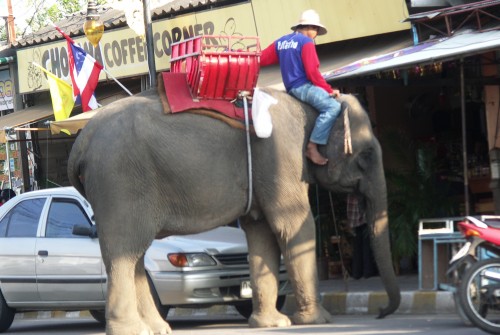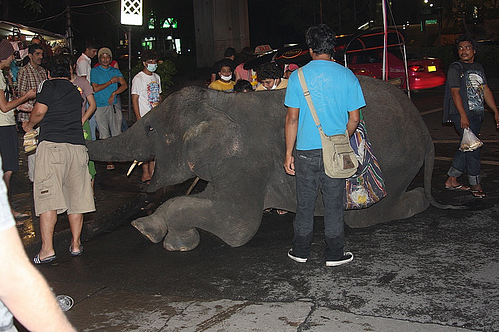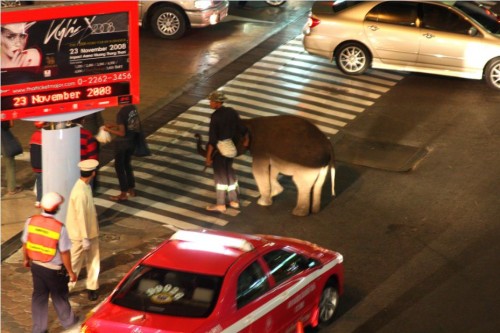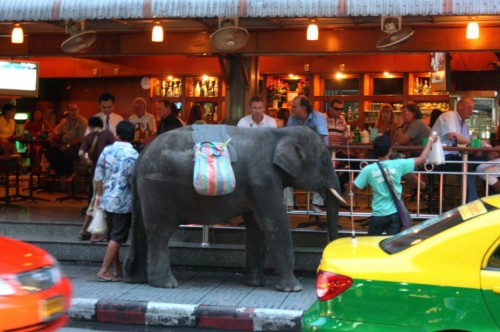Begging
While exploring the wonders of Asian cities, you may see a begging elephant
While illegal in some places, elephants of all ages, very often babies, are found working in cities like Chiang Mai, Pattaya, and Delhi. City work reduces life expectancy by 50%. Starvation, dehydration, and disease are just some of the reasons. None of the begging elephants receive the proper diet of at least 5% of their body weight per day in grasses, vegetables, and fruits.
These elephants suffer from sensory overload as their eyes, ears, and sensitive feet are pounded by the city vibrations, lights, and noises. You may even see an elephant rocking side to side. Experts believe this behavior, not seen in the wild, is a sign of nervousness and stress. Car pollution damages their respiratory system as they breathe exhaust through their low hanging trunks. With no shade or mud to protect their skin, sun exposure is also a serious problem. Disoriented in the city traffic, elephants fall victim to the fast pace of cars and trucks. At one time, there were an estimated 15 accidents per month in Bangkok alone.
What do you do?
Begging is a very lucrative form of employment. Handlers collect money from tourists in exchange for a trick, ride or most commonly, allowing you to feed the elephant a piece of sugar cane. Do NOT pay to feed an elephant. A starving elephant would much rather eat fruit and vegetables such as bananas, cucumber, pumpkin, or corn. Go to the market and have some ready. Bananas are easy to carry, a favorite food, and easy for babies to eat. Not sure how to feed an elephant or believe the handler to be unwelcoming? Toss the food on the ground close to the elephant’s trunk, and it will happily snatch it up.






